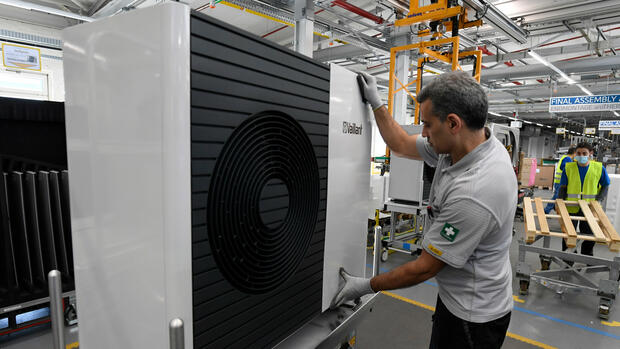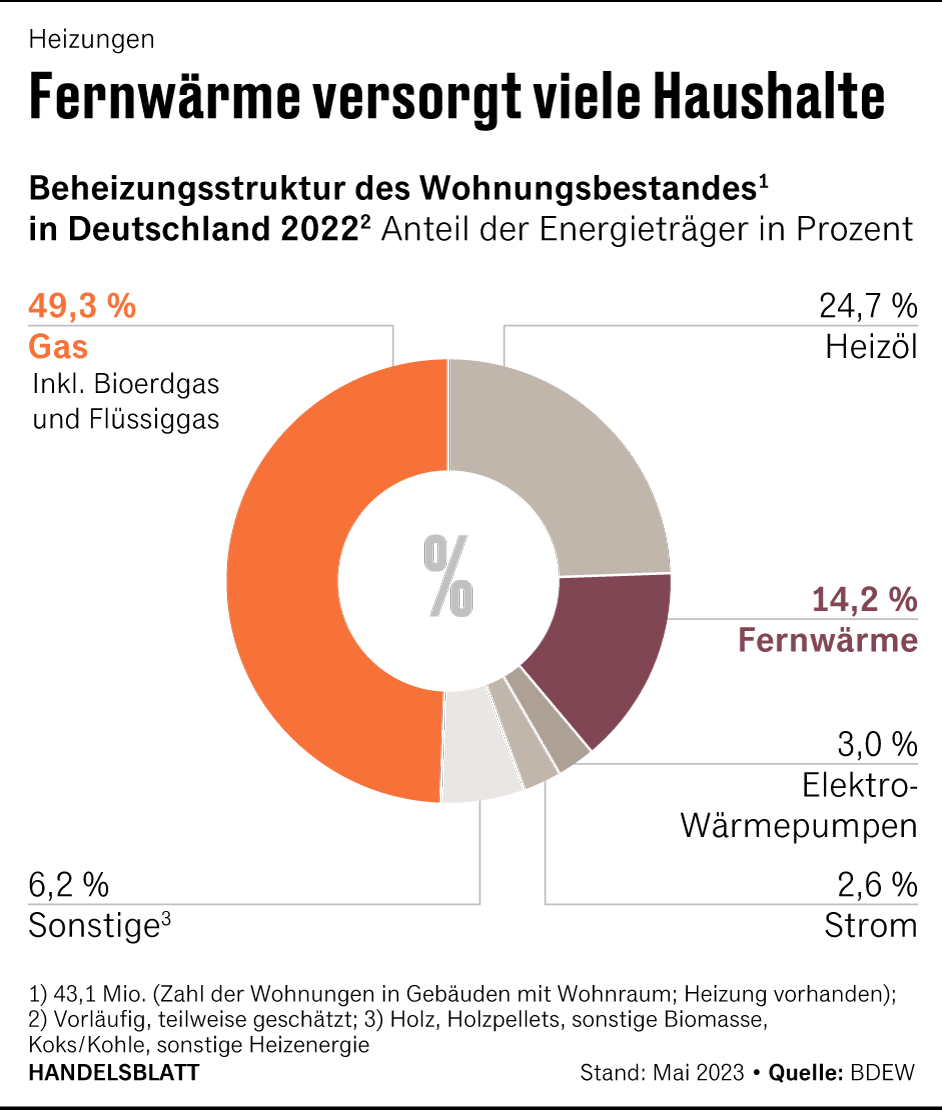The heating law is intended to help make the building sector more climate-friendly.
(Photo: dpa)
Berlin The Building Energy Act (GEG) will burden the citizens, the economy, but also the federal, state and local governments in the coming years in the tens of billions. This emerges from the revised draft law for the amendment of the GEG, which is available to the Handelsblatt.
According to this, the regulations for the installation of new heating systems will result in annual costs of around 9.157 billion euros for citizens up to 2028. From 2029, the annual costs are expected to be around 5.039 billion euros. This is offset by savings of around 11.125 billion euros over 18 years.
According to the draft, the expense can only be roughly represented due to the technology-neutral regulation and the large spread in the potential investment costs.
In addition, there are costs for citizens to meet the requirements for optimizing existing heating systems. In the new draft law, the Federal Ministry of Economics is assuming 50 million euros per year. At the same time, savings of 182 million euros can be expected over the lifetime of the affected systems.
The economy also has to invest large sums in its heating systems. The Ministry is assuming annual costs of around 2.7 billion euros by 2028. From 2029, the annual compliance costs should amount to 2.5 billion euros. The savings over 18 years are around eight billion euros.
The Building Energy Act is due to pass the Bundestag next week
The energy turnaround in the building sector is central to achieving climate policy goals and becoming less dependent on imports of fossil energy. “More than a third of the total energy requirement in Germany is used to heat our buildings and to supply hot water,” says the draft law. Without a quick change of course in the area of building heating, Germany could neither achieve the climate targets nor quickly reduce its dependence on fossil raw materials.
The traffic light coalition of SPD, Greens and FDP has been arguing for weeks about the right way to advance the heat transition in the building sector and reduce CO2 emissions. Time is running out. Germany wants to be climate-neutral by 2045. The Building Energy Act is due to pass the Bundestag next week so that citizens will have a clear picture of exactly what is to come in the next few years before the parliamentary summer recess.
The FDP in particular will take a close look at the revised draft law this Thursday. She had expressed the most criticism of the first proposals from the house of Federal Minister of Economics Robert Habeck (Greens) and, above all, pushed for greater openness to technology.
More: Heating Act: These are the crucial aspects

